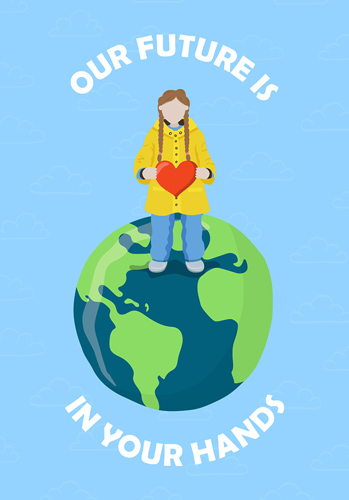2 Climate change and children’s rights
Despite the near universal ratification of the UNCRC, children’s rights remain under threat. One recent area of concern for both policy makers and academics is the way that contemporary problems such as climate change have disproportionate impacts on children – particularly those who are poor or already vulnerable. The ways in which climate change can violate children’s rights will be the focus of this section.
In 2019, the United Nations Intergovernmental Panel on Climate Change (IPCC) claimed that unless the world’s industrialised nations acted to limit global warming to 1.5°C by 2030 there would be catastrophic and irreversible climate change. There is strong evidence to suggest that a failure to tackle climate change will lead to unprecedented environmental and social catastrophes, with an increase in extreme weather, flooding, droughts and heat waves, damage to ecosystems in the Amazon rainforest and Polar Regions, and rising sea levels. The climate crisis has also led to social unrest – 2019 was characterised by mass protests in major cities throughout the world calling on governments to act before it is too late.
Children and young people have been at the forefront of many campaigns and movements against climate change and environmental damage for several reasons. They have been used as symbols of the future and representatives of the next generation, as well as the inheritors of the problems caused by decisions made before they were born.
In 2016, U.S. Secretary of State John Kerry arrived in France to sign the Paris Agreement. As he came up to sign the agreement he carried his young granddaughter to the podium to remind the audience of the importance of the treaty to future generations. While the symbolism of this was a little obvious (The Daily Mail responded, ‘OK, Mr. Kerry, We Get It—It’s for the Children’, quoted in Cocco-Klein and Mauger, 2018, p. 90), it underlined the point that it is today’s children who will bear the brunt of the effects of climate change in the future. They will be living with the impacts of decisions made decades ago and will be living in a world with vastly different weather, coastlines and environments than those of today. Their rights are being violated by climate change in myriad ways – these will be examined in the next section.

